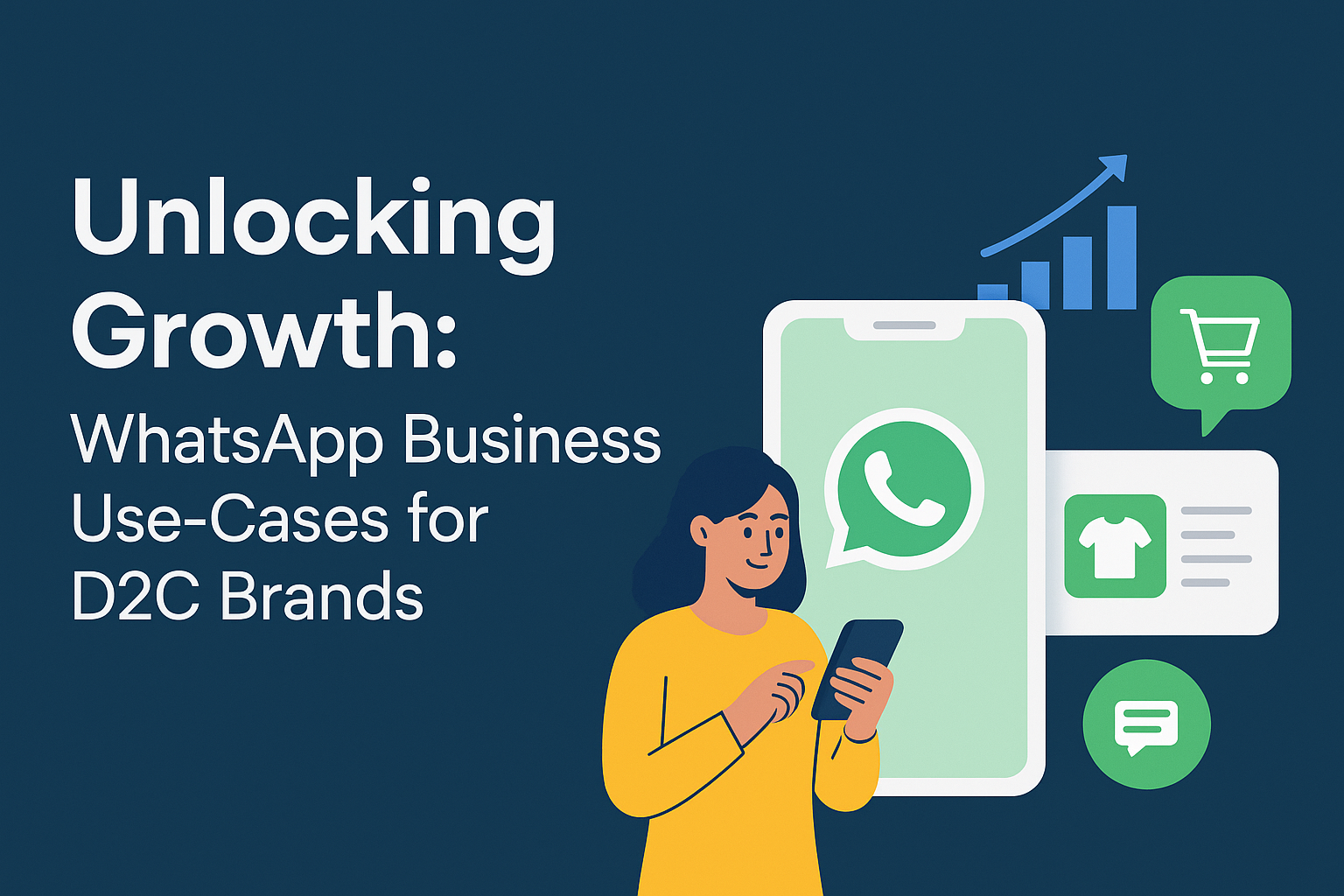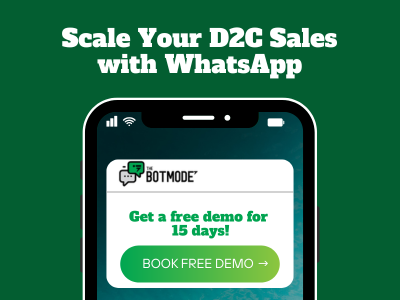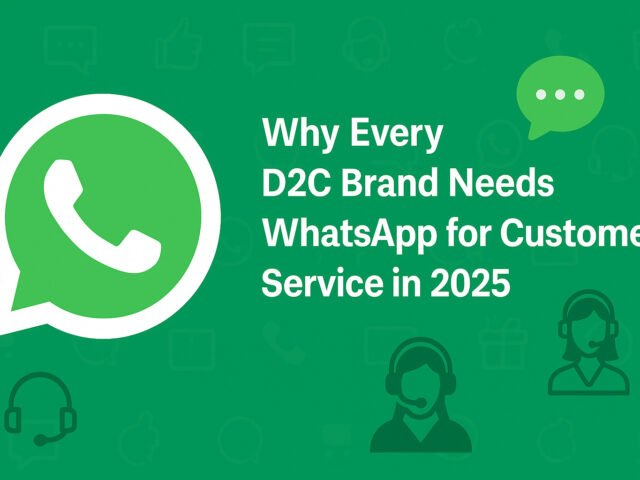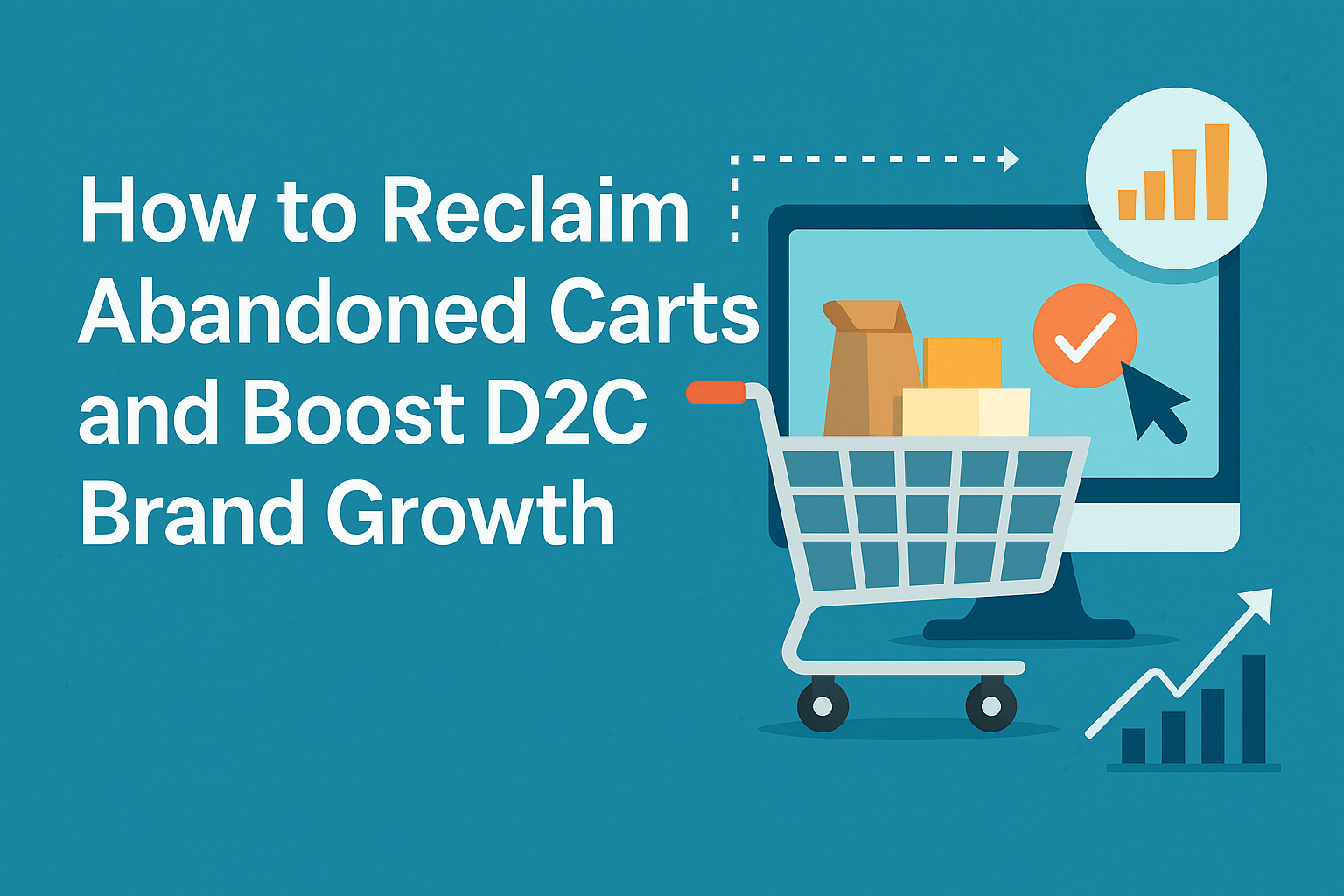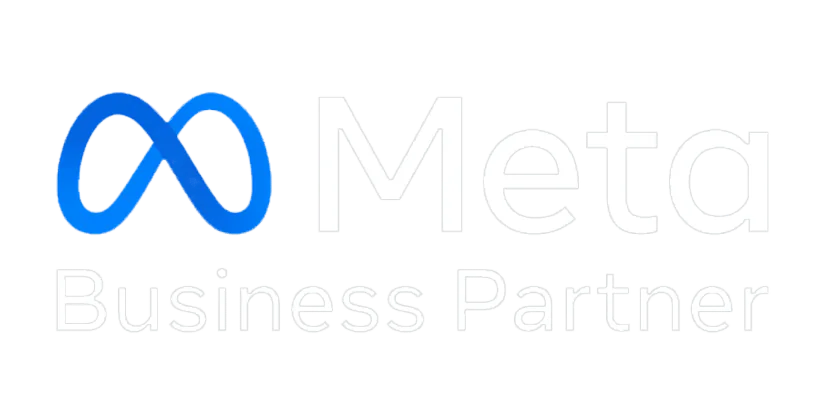Introduction
In the crowded world of Direct-to-Consumer (D2C) brands, attracting visitors to your website or app is only half the battle. The bigger challenge lies in converting them into buyers — and then keeping them coming back. Mobile-first audiences expect personal, fast and friction-free experiences. That’s where WhatsApp steps in. With its massive global user base and deeply trusted environment, WhatsApp is no longer just a messaging app — it’s a conversational commerce powerhouse.
For D2C brands, using WhatsApp Business (and when scale demands, its API) opens a direct line to the customer, from discovery to checkout and beyond. In this blog, we’ll walk through concrete use-cases where WhatsApp adds real value, best practices to follow, and how your brand can get started to unlock growth.
Why WhatsApp Business is a Game-Changer for D2C Brands
- WhatsApp has global reach — billions of users worldwide — making it one of the most ubiquitous mobile channels.
- Engagement is extraordinary: open rates for WhatsApp messages can reach ~98%, hugely outperforming email open rates.
- The mobile-first nature of D2C buyers means they want simple, chat-based, direct-to-brand communication. WhatsApp meets them where they already are.
- WhatsApp Business (and its API) enable richer interactions — product catalogues, rich media, automation, segmentation and conversational flows. These features mean WhatsApp is more than a channel — it becomes a sales, service and loyalty engine.
- With D2C brands increasingly relying on fast, personalised engagement, WhatsApp provides lower friction, faster responses and direct connection. For example, research shows 66% of users have made a purchase after communicating with a brand on WhatsApp.
In short: for D2C brands, WhatsApp Business offers high visibility + low friction + personal touch = a powerful growth lever.
Key Use-Cases of WhatsApp Business for D2C Brands
Use-Case 1 – Cart Abandonment Recovery & Notifications
Cart abandonment remains a major pain point for D2C brands: users browse, add to cart, and vanish. But a timely WhatsApp message can recover the sale.
Using WhatsApp Business, brands can send a personalised reminder like: “Hi [Name], you left these items in your cart — they’re almost gone!” with a clickable product link. Because WhatsApp messages get opened almost immediately in many markets, this creates urgency and a direct line back to checkout.
Case studies show brands using WhatsApp for cart recovery achieved substantial returns.
Use-Case 2 – Rich Media Catalogues & Conversational Commerce
D2C shoppers expect more than text links. With the WhatsApp Business catalogue and chat-based flows, a brand can present product images, videos, allow customers to browse within chat, ask questions, and even complete purchases without leaving the app.
Example: A brand sends a message: “Check out our new summer collection” with a carousel of product cards. The user Taps a card → asks a question in chat → pays via a link or payment flow — all within WhatsApp.
Studies show this kind of chat-based commerce can drive up to 3× conversion rates compared to traditional channels.
Use-Case 3 – Personalised Promotions & Segmented Broadcasts
Because WhatsApp is inherently personal, D2C brands that send generic blasts miss the mark. The magic comes when you segment your audience — by first-time vs returning, by purchase history, interests — and send tailored offers.
For instance, segment: “Customers who bought skincare last quarter but not in past month” → send “Hello [Name], we’ve just launched a new serum we think you’ll love” via WhatsApp.
This kind of targeted, value-driven message works because engagement is high — consumers prefer personalised chat-based offers.
Use-Case 4 – Post-Purchase Experience & Support
Acquiring a customer is just step one. The post-purchase journey (order confirmation, shipping update, delivery tracking, returns, feedback) is critical to build loyalty and repeat purchases.
WhatsApp Business shines here: send automatic order confirmations, shipping alerts, “Your package will arrive tomorrow between 3-5 PM,” and allow the customer to reply “Reschedule” all in the same chat.
Brands using WhatsApp for support report higher satisfaction and retention because the conversation stays within a familiar app.
Use-Case 5 – Community & Loyalty Building
Beyond one-off purchases, D2C brands succeed when they build communities and loyalty. WhatsApp can serve as a VIP channel: invite loyal customers to an exclusive WhatsApp group or broadcast list where they get early access to launches, referral perks, behind-the-scenes content.
This fosters brand intimacy and repeat business — often overlooked in typical D2C acquisition-centric strategies.
Best Practices for Implementing WhatsApp Business in a D2C Brand
- Obtain clear opt-in: Make sure your subscribers consent to receive WhatsApp messages. Respecting privacy builds trust (and avoids spam complaints).
- Choose the right edition: Use the basic WhatsApp Business App for smaller scale. For higher volume, automation, multi-agent access and integration you’ll need the WhatsApp Business API.
- Integrate with your stack: Sync WhatsApp with your e-commerce platform (Shopify, WooCommerce), CRM, and marketing automation so data flows seamlessly: cart info, purchase history, chat logs.
- Automate core flows: Set up greeting messages, FAQs bot, order updates. But make sure human hand-over is easy when the conversation is complex.
- Leverage segmentation & personalisation: Use customer data to send relevant messages, not “one size fits all” blasts.
- Design for mobile-first conversational flows: Keep messages short, use quick-reply buttons, include images/videos, deliver value.
- Measure the right metrics: Track open rate, click-through rate, response rate, conversion from WhatsApp channel, repeat purchase rate.
- Be respectful and valuable: The chat space is more personal than email. If you spam or blast irrelevant offers you risk opt-outs. Automation is helpful, but misuse will backfire.
Challenges and Pitfalls to Avoid
- Over-messaging / irrelevant content: Because WhatsApp is perceived as personal, messages that feel too promotional or untargeted can annoy users and damage brand trust.
- Relying too heavily on a single channel: WhatsApp is powerful, but it should be integrated in your overall omnichannel strategy, not stand alone.
- Poor timing or lack of personalisation: Even a good offer can fail if delivered at the wrong time or in a generic way.
- Lack of measurement or ROI tracking: Without data you won’t know what’s working; tracking conversions and customer value from WhatsApp is critical.
- Ignoring compliance/messaging rules: Especially when using templates or broadcasts, ensure you comply with WhatsApp’s policies and local regulations.
Action Plan: How Your D2C Brand Can Get Started
- Choose your WhatsApp Business edition: If you’re a small brand with a limited number of chats, the WhatsApp Business App may suffice. If you expect high volume, need automation and multiple agents, go for the WhatsApp Business API.
- Build your subscriber list: Use your website, checkout, social channels to invite customers to “Chat with us on WhatsApp” or “Get exclusive offers via WhatsApp”. Make sure to obtain opt-ins.
- Define 2-3 high-impact use-cases to pilot: For example, cart-abandonment recovery + order update flows + VIP loyalty broadcast. Focus on flows you can measure.
- Set up automation & catalogue: Integrate your product catalogue, link chat to checkout where possible, build conversational flows (bot + human fallback).
- Launch pilot campaign: Send your first segmented broadcast or cart-reminder. Track metrics (open rates, clicks, conversions) and compare to your baseline.
- Measure, iterate, scale: Analyse what works (which message, which segment, what timing), refine your flows, then scale to the full lifecycle (pre-sale, sale, post-sale, loyalty).
- Build long-term loyalty: Use the channel beyond just promotions. It should serve as a service and community touchpoint. Invite customers, share behind-the-scenes, reward them, create brand culture.
Conclusion
For D2C brands looking to drive growth, not just traffic, the shift from “just getting visits” to “meaningful one-to-one engagement” is critical. The WhatsApp Business platform offers an extraordinary combination of reach, real-time engagement and conversational capability that few channels match. When used with strategy, with respect for the user experience, and supported by data and automation, WhatsApp becomes not just a messaging tool but a sales, service and loyalty engine.
FAQs
Q1: How can WhatsApp Business help D2C brands grow?
WhatsApp Business helps D2C brands grow by improving engagement, automating customer support, and enabling conversational sales that drive higher conversions and repeat purchases.
Q2: What is the main difference between WhatsApp Business App and API?
The App suits small D2C brands for direct chats, while the API supports larger brands with automation, integrations, and multi-agent support.
Q3: Can D2C brands use WhatsApp Business for marketing?
Yes. Brands can send personalized promotions, product updates, and exclusive offers to opt-in users, driving better engagement than email or SMS.
Q4: Is WhatsApp Business good for customer service?
Absolutely. It allows real-time chats, order tracking, and post-purchase support, enhancing satisfaction and retention.

